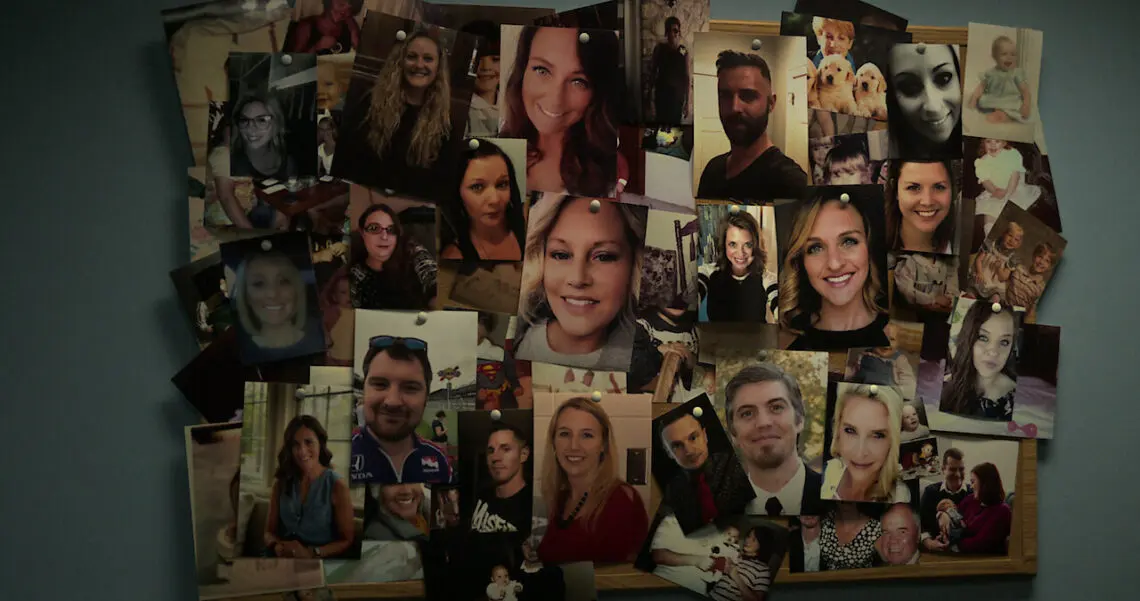Netflix privacy lawsuit: ‘Our Father’ documentary controversy
True crime success and legal challenges
Netflix has significantly transformed the television landscape, largely owing to the explosive popularity of the true crime genre. With cultural phenomena like “Making a Murderer” and “Inventing Anna,” the streaming giant has captivated millions. However, these gripping narratives often lead to unexpected legal battles, mainly centered around claims of defamation and misrepresentation by those depicted.
A new twist in the saga
The latest legal dispute arises from the 2022 documentary “Our Father”, which explores the unsettling actions of Donald Cline, an Indiana fertility doctor who clandestinely fathered 94 children. Unlike typical defamation cases, this lawsuit involves three women alleging “public disclosure of private facts,” arguing the documentary exposed their identities as Cline’s secret children without consent.
Understanding the claims
A matter of privacy or public interest?
The three women involved do not contest the factual accuracy of the documentary. Instead, they argue that the revelation of their identities constitutes a severe breach of privacy. The plaintiffs claim that their exposure caused them significant reputational damage, emotional distress, and embarrassment.
The First Amendment generally affords wide latitude for publishers to disclose true information. However, a specific category of highly personal information, if publicly disclosed, can be deemed illegal. This is particularly relevant when the details are of an intimate nature that could deeply shock or harm someone if exposed.
In this landmark lawsuit, the plaintiffs argue that the documentary revealed intensely private details that were neither necessary for the story nor protected under public interest justifications.
The intricate backstory
DNA testing and revelations
The story began unfolding when several individuals from Indiana, after sending DNA samples to 23andMe, discovered they were half-siblings. This revelation led to the identification of Donald Cline as their biological father, which shocked the community and garnered substantial media attention in 2015. The uproar eventually prompted the enactment of state laws against “fertility fraud.”
Subsequently, a documentary producer contacted several of Cline’s offspring, ensuring them that their identities would not be disclosed without explicit permission. Out of the contacted group, eight individuals agreed to be interviewed, providing a foundation for the film.
The breach and the lawsuit
Unauthorized disclosures
Despite their assurances, the documentary featured shots of the 23andMe website, incidentally revealing the names of three women who had chosen not to go public. The inclusion of two of these names in the film’s trailer exacerbated the situation, leading to allegations of “reputational injury, distress, embarrassment, and emotional trauma” by the women.
Netflix attempted to have the lawsuit dismissed, arguing that the fleeting presentation of the names was essential to highlight the real-life impact of Dr. Cline’s actions. However, the court did not accept this defense.
Legal analysis
Privacy versus newsworthiness
In a significant ruling, Judge Tanya Walton Pratt allowed two of the women to proceed to trial. The judge noted that Netflix had failed to sufficiently blur out the names, despite being aware of the plaintiffs’ desire to remain anonymous. The plaintiffs’ privacy was deemed to outweigh the public’s interest in knowing their identities, underlining the court’s stance that the women’s names did not add necessary credibility to the documentary’s narrative.
Netflix’s internal marketing was used against the streamer in court, demonstrating that the company was aware of the disturbing nature of the story, branding it as “super creepy,” “chilling,” and akin to a horror film.
The fleeting anonymity debate
*Netflix’s arguments
Netflix contended that the women had not maintained their secrecy, highlighting activities such as sending DNA samples to 23andMe, joining a private Facebook group, and making related Instagram posts. While the judge found this argument unpersuasive for two of the women, citing their expected privacy within closed groups, one woman’s extensive public disclosures led to the dismissal of her claims.
This case underscores the complex interplay between an individual’s right to privacy and the First Amendment rights of publishers, especially in an era where personal data can be publicly shared, often inadvertently. It also raises questions about investigative journalism and documentary filmmaking ethics, particularly when dealing with sensitive and personal subjects.
Netflix’s challenges
The ongoing legal challenge
The trial, where the remaining two women seek punitive damages, will test the boundaries of privacy rights versus public interest journalism. Their initial anonymity in the lawsuit was lifted due to new legal precedents, forcing them into an uncomfortable spotlight once again.
As Netflix grapples with these legal ramifications, the industry watches closely, acknowledging the delicate balance between storytelling and privacy. This case may set a precedent for how true crime documentaries handle sensitive personal information in the future.
In these times of legal scrutiny, Netflix remains silent on the ruling. For more insights into legal battles and behind-the-scenes stories in the entertainment industry, stay tuned and share this analysis on your social platforms. Your thoughts and discussions enrich our community.

 Italian
Italian







